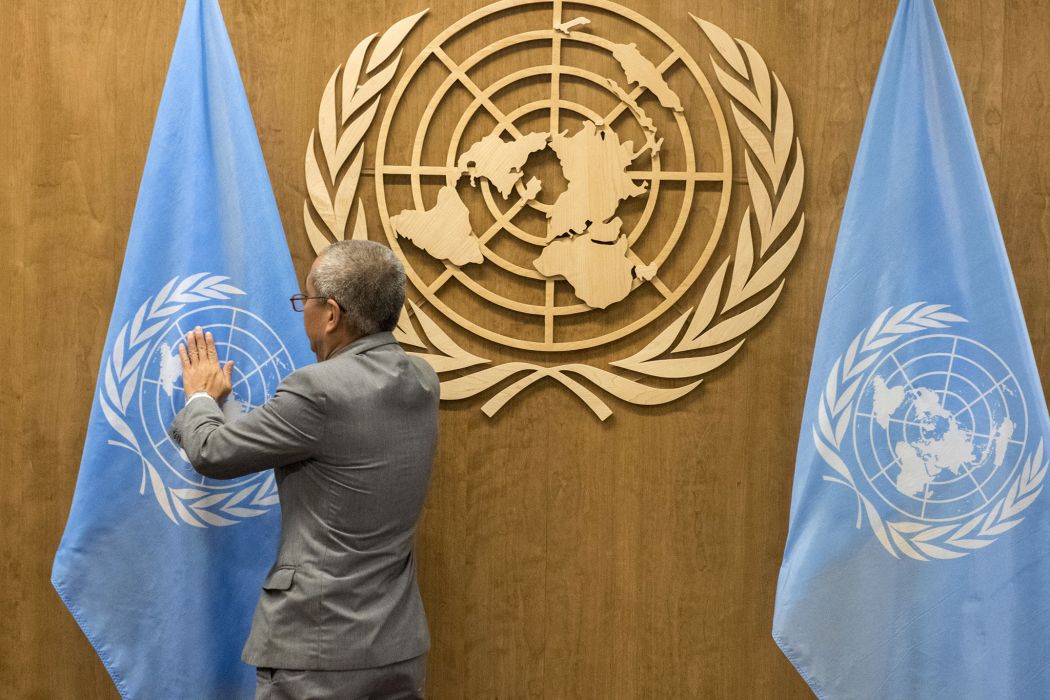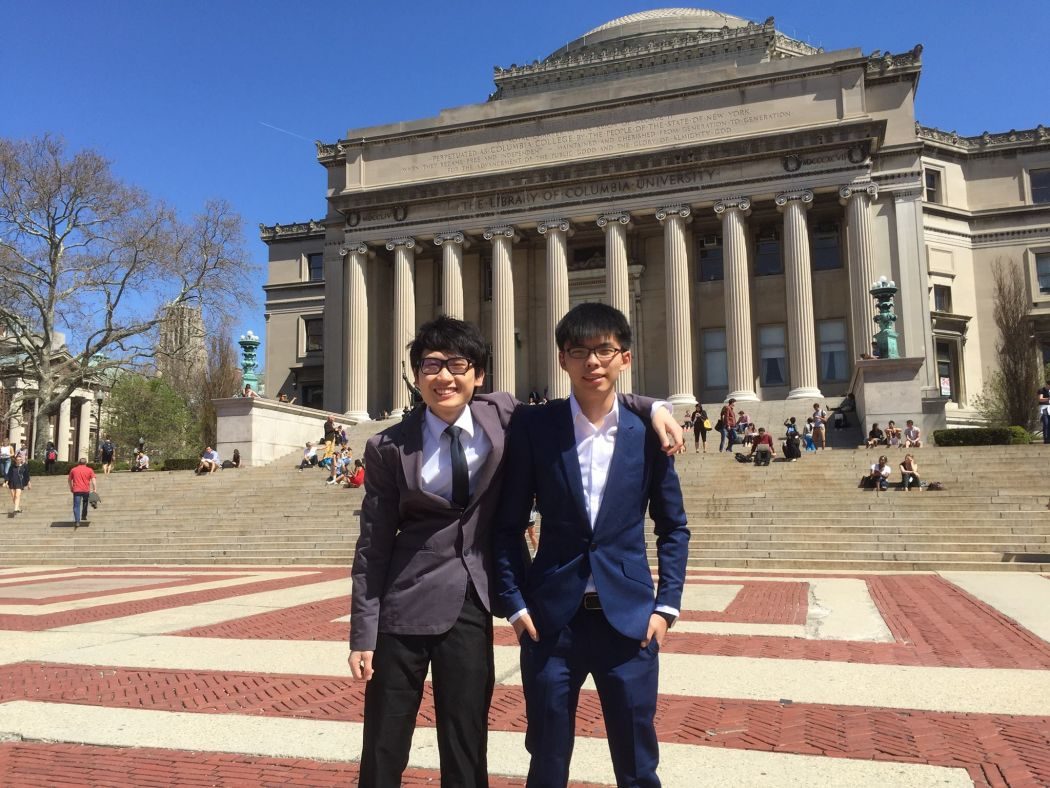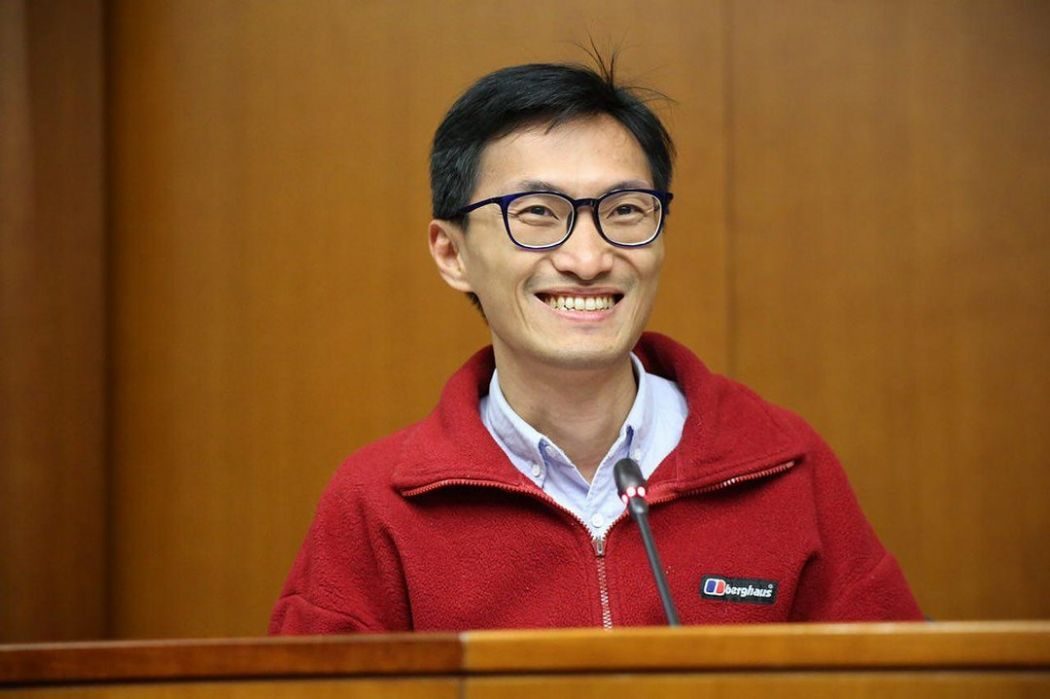Catalonia, Iraqi Kurdistan, Puerto Rico, Scotland, Kosovo, East Timor, South Sudan, Montenegro: In the last 15 years, a strikingly high number of peoples have either held independence referenda or declared independence.

In doing so, all invoked their inherent right of self-determination. That list excludes the new countries which emerged from the demise of the Soviet Union in the 90s, former parts of Yugoslavia, Slovakia. It also omits referenda that did not result in independence—for instance, in 1995, 93 percent of registered voters took part in a Quebec referendum on independence, voting narrowly to remain part of Canada.
Some of the countries on the list above are among the poorest on the planet. Some were brutally oppressed. Some are relatively prosperous with well protected rights. Some were recognized and supported by the countries from which they considered separating; others did so against the will of those countries.
What lessons do the cases of peoples who have considered independence hold for Hong Kong people? On what legal and moral grounds is the right of self-determination based?
The background
The very first article of both of the world’s two foundational, legally-binding human rights covenants, the International Covenant on Civil and Political Rights and the International Covenant on Economic, Social and Cultural Rights, includes this:
Article 1
- All peoples have the right of self-determination. By virtue of that right they freely determine their political status and freely pursue their economic, social and cultural development
Self-determination is the only right to appear in both treaties, with exactly the same wording. Why?
LIke most constitutional documents that are supposed to have a whiff of the eternal about them, the ICCPR and ICESCR are products of history. They date from 1966, when peoples around the world were achieving independence from colonial domination.
There is no mention of a right to self-determination in the Universal Declaration of Human Rights, the document upon which the ICCPR and ICESCR are based. Self-determination is mentioned in the United Nations Charter of 1945, but not explicitly as a right.
Newly independent states pushed for the Covenants, 18 years after the UDHR, and also ensured that the right of self-determination came first in each. The logic was that to ensure that peoples had the other rights they needed the right to determine their own political status.
As far as the UN, an organization made up of states, was concerned, this was the high-water mark for self-determination. States have never, for obvious reasons, been keen on this right.
They have generally gone out of their way to emphasize state sovereignty over self-determination. In the most recent cases, the Catalans and the Iraqi Kurds, you have to look hard to find a state that supports their right of self-determination.

Still, numerous peoples over the last half-century have asserted the right, some more successfully than others, and they still do.
Hong Kong people and the right of self-determination
That Hong Kong people have this right is indisputable—all “peoples” do.
Even from a strictly legalistic perspective, Basic Law Article 39 states that Hong Kong is party to both the ICCPR and ICESCR, which guarantee the right. In 1975, the UK inserted a reservation into the ICCPR regarding Hong Kong and the right of self-determination.
Given that Hong Kong’s political status has changed since then, there is some doubt whether the UK’s reservations on Hong Kong still persist.
The UK also made a reservation regarding Hong Kong and the right to universal suffrage, but the UN Human Rights Committee, which monitors states parties to the ICCPR, has said it no longer applies. China doesn’t agree and has argued that all reservations on Hong Kong that it inherited from the UK continue to apply.
Hong Kong is also party to the ICESCR, and there is no reservation regarding the right of self-determination under that covenant.
Are Hong Kong people a “people”? The right of self-determination, unlike, say, the right to freedom of expression, is a group right, not an individual right.
While it’s usually easy to determine what an individual person is (short answer: every human being), it is not always easy to define a “people”. There is no international consensus on the legal definition.

Still, generally speaking, the standard criteria are quite clear: a group of people who share a common heritage, history, culture, language, a clearly defined territory, often but not always a separate jurisdiction and, as a result, a distinct identity.
On all these counts, Hong Kong people do indeed constitute a “people” and thereby qualify for the right to self-determination. Even if you say Hong Kong people are Chinese, they are also distinct from other Chinese people.
But while definitely a “people”, Hong Kong people have never been allowed to exercise this right: Their political status has always been determined by others. First they were a UK colony. Then they were handed over to the Communist Party like a present.
Hong Kong people never agreed to be part of the PRC, any more than they agreed to be a UK colony.
Self-determination versus state sovereignty
Probably nobody would even be discussing self-determination if the Communist Party had respected Hong Kong’s supposedly “high degree of autonomy”. But it has not.
The denial of genuine suffrage in 2014 and 2015 was the last straw. What made it worse, and more ominous, was that in asserting that it was allowing “universal suffrage”, the Party disingenuously pretended to grant the very thing it withheld.
Either it was not acting in good faith or its understanding of universal suffrage was wildly divergent from international law and standards.
Now the Party says its 31 August 2014 decision denying genuine suffrage stands for all time and will not be amended. In other words, Hong Kong is indefinitely stuck with the denial of this basic human right.
The chances of the Party ever allowing the suffrage which the Basic Law legally obliges it to grant are exceedingly low, so one can say the Party has reneged on its implicit contract with Hong Kong, according to which Hong Kong people would recognize PRC sovereignty in exchange for real autonomy and the right to form their own government.

If that is the case, it surely justifies the demand for self-determination, for the basic rights of Hong Kong people will not be respected or realized under Hong Kong’s current political status.
It has often been said that there is no internationally recognized right to secession. Not so. The right is implied by the right of self-determination, and the fact that Hong Kong was first a colony and then a region of the world’s largest dictatorship improves Hong Kong people’s argument for the right of self-determination, whether or not that entails secession.
Even conservative scholars of international law who argue that the right of self-determination must be highly circumscribed do allow that “a general right to secede [exists] if and only if [the people] has suffered certain injustices, for which secession is the appropriate remedy of last resort.”
This is known as Remedial Right Only Theory. What constitutes “certain injustices”? Iraq’s genocide against the Kurds is certainly a “certain injustice”. What about the Party’s denial of universal suffrage to Hong Kong? After all, it involves no direct physical violence or atrocity. Yet it constitutes the indefinite denial of a basic human right.

As for “of last resort”… For 20 years, Hong Kong people have tried to get the Party to honour its promise, and finally, rather than doing so, it redefined the term “universal suffrage”, in order to continue denying it.
That’s what the Umbrella Movement was about. It said, we’ve had enough, what else can we do? And that didn’t work. So now what? We’ve reached the last resort.
Whatever balance is struck in theory between state sovereignty and self-determination, sovereignty cannot trump the right of self-determination in undemocratic states and places where the people have never had an opportunity to determine their political status.
Dictators’ assertions of sovereignty are tantamount to tyranny. The logic of international human rights law is that it is the people, not unelected leaders or dictatorial regimes or even states, who are sovereign.
When the Communist Party argues that Basic Law Article 1 states unequivocally that Hong Kong is an “inalienable” part of the PRC, one must ask, says who?
Hong Kong people themselves have certainly never consented to this; it was imposed upon them. Hong Kong people have “inalienable” rights, including the right of self-determination, which they have always been denied.
The recent history of the self-determination movement in Hong Kong
The right of self-determination first came up in the Hong Kong pro-democracy movement shortly after the end of the Umbrella Movement in December 2014.
I remember Joshua Wong discussing self-determination at a panel discussion at the protest camp outside of Legco in the days leading up to the vote on the fake suffrage proposal.
Many were already moving beyond the suffrage debate since it was clear that under the Communist Party, genuine suffrage would never be granted to Hong Kong. The question was, what next?
Joshua proposed self-determination as the next step of the pro-democracy movement in his first essay on the topic in August 2015. The political party which he eventually co-founded in April 2016, Demosistō, has made self-determination one of the cornerstones of its mission.

Proponents of Hong Kong self-determination have gone out of their way to state that while they don’t rule out independence, they don’t support it either. Their point is that it should be Hong Kong people themselves who determine their political status.
Besides full independence, other options are full assimilation into the PRC and some form of autonomy, presumably similar to the “high degree of autonomy” Hong Kong is supposed to enjoy now.
However, as the Communist Party has never allowed genuine autonomy in the PRC and the regions in the PRC described as autonomous (like Tibet and Xinjiang) are the most tightly controlled by the central government, autonomy is a hard sell.
Quebec, Greenland and Åland are often held up as successful examples of “internal self-determination”, but it should be noted that all three are in states (Canada, Denmark and Finland respectively) which are stable liberal democracies and protect minority rights. There are no successful examples of internal self-determination under dictatorships.
At one point, Hong Kong people might have been content with the “high degree of autonomy” they were promised, but that that has been significantly eroded and is perceived by many to be quickly disappearing. It is now less likely Hong Kong people would settle for this.
That is why the Party treats self-determination and independence as the same thing. It realises that, in the eyes of many Hong Kong people, it has lost the moral right to rule Hong Kong.
The rise of self-determination and the Party backlash
For a time, the rise of the idea of self-determination in Hong Kong seemed inexorable.
In April 2016, about 30 self-described “young democrats” calling themselves ReformHong Kong published a “Resolution on the Future of Hong Kong” which advocated self-determination, invoked international law to buttress their argument, and proposed “perpetual self-rule” for the city.
They appeared to be hedging somewhat, as they spoke in terms of “internal self-determination”. It was hard to see the difference from a “high degree of autonomy” and “Hong Kong people ruling Hong Kong”, except that the group advocated continuing these policies beyond the end of the 50-year “one country, two systems” arrangement in 2047.
In March and June 2016, two moderate pan-democratic political parties issued manifestos that stressed Hong Kong people’s right to rule Hong Kong. The Association for Democracy and People’s Livelihood (ADPL), called for self-determination. The Civic Party, while not using the term “self-determination”, spoke of defending Hong Kong’s autonomy, and ensuring that Hong Kong people decide what happens to Hong Kong after 2047.

By October 2016, Joshua and Jeffrey Ngo were actually in a media debate with Song Zhe, the Commissioner of the Foreign Ministry of the PRC in Hong Kong. The latter’s “Self-determination in Hong Kong is a Non-Issue” appeared in The Wall Street Journal in mid-October.
Then the Party got freaked out by the success of self-determination advocates in the September 2016 Legco elections, and has since gone on the attack, doing whatever it can not only to dislodge them from Legco but also to eviscerate their organizations.
Eddie Chu Hoi-dick, the top vote-getter ever in Legco elections, is one of the few outspoken self-determinationists still left in Legco. While he shares with Joshua and Demosistō the same objective of self-determination, the two have quite different ideas on how to get there. Both regard self-determination as a long-term project, with the goal being for Hong Kong people to determine Hong Kong’s political status after 2047.
Joshua, though, envisioned developing a culture of referenda that would eventually lead up to a referendum on Hong Kong’s post-2047 political status, to be held some 15 years down the road, around 2030.
The justification for the long delay was to give Hong Kong people time to get used to the referendum mechanism and debate the options, so that they could use their vote responsibly and make the most of the opportunity.
The major unanswered question was how did Joshua imagine the Party and Hong Kong government would ever recognize such a referendum as legally binding? The hinted answer seemed to be, we’ll cross that bridge when we get there.
Eddie Chu, on the other hand, thought working through the existing political system was the answer. Shortly after his victory in September 2016, he envisioned that within four to eight years, the self-determination camp would be the biggest in Legco.

Less than a month later, the Hong Kong government initiated legal proceedings to dislodge first two elected Legco members and eventually four more. Of these six, four were explicit proponents of self-determination, and the other two were very sympathetic to the cause.
So much for the Party and the Hong Kong government allowing representatives holding such political beliefs to hold office within the formal political system.
Recently, neither Joshua nor Eddie have said much about self-determination, presumably because they’ve been rather busy fending off attacks by the Party and Hong Kong government.
This seems to support critics’ views of self-determination and independence advocates. They say the ideas are simply unrealistic. But what’s so realistic about continuing to push for real universal suffrage?
The Party clearly perceives self-determination advocacy as a threat. Will it succeed in destroying the advocates? Its current crackdown is so intense and widespread that it affects almost everybody in the pro-democracy movement, which has the ironic effect of actually bringing them together.
Self-determination was originally inspired by localists. Many moderate pan-democrats have inched their way in that direction, as witnessed by the Civic Party and ADPL manifestoes of 2016.

Legco member Claudia Mo left Civic Party to start Hong Kong First. Another Legco member Fernando Cheung of Labour Party “caucuses” with the self-determinationists. Then you’ve got Demosistō, Democracy Groundwork, Eddie Chu, League of Social Democrats, People Power, Civic Passion, Youngspiration, Hong Kong Indigenous.
Just about the only prominent pro-democracy group that hasn’t indicated support for some form of self-determination is the Democratic Party. So most of the pro-democracy movement is already self-determinationist. What remains to be seen is whether they can turn the cause, for which there is widespread support, into a political force. Doing so while under Party attack is challenging, to say the least.
Meanwhile, the forces of Party-driven mainlandisation cast an ever-longer shadow over Hong Kong, where time does not stand still. The clock is ticking. Which side will win in the end?
On its side, the Party has military force, economic might, an ideology that prioritizes maintaining its empire above almost all else, and the state-centric bias of the international community’s preference for the status quo.
Hong Kong people have international law, justice and morality on their side– not necessarily a winning combination, but neither should it be underestimated. Oh, yes, and people power. That, with a clear game plan focused on achieving a positive common objective, would constitute at the very least a force to contend with.
The struggle continues. Beneath the issue of self-determination is the question of who does a people, a land belong to? Does Hong Kong belong to the Party, to China, to Hong Kong people?
The Party-stoked nationalism on the mainland has led many Chinese to see Hong Kong as belonging to China, not Hong Kong people. We need to fight to ensure that, after 175 years, that question will finally be for Hong Kong people to decide.
This article is the fifth in a 5-part series on the Umbrella Movement three years after its beginning in September 2014. The first article is “Why I wrote ‘Umbrella’, a 600-page account of the Umbrella Movement”; the second, “The Umbrella Movement after three years: So much accomplished, and much still to do”, and the third, “Three years on, the Umbrella Movement fallout determines Hong Kong politics today”, and the fourth, Mainlandisation: How the Communist Party works to control and assimilate Hong Kong. Kong is the author of Umbrella: A Political Tale from Hong Kong. He envisions a time when September 28 will be Hong Kong’s national day and “Raise Your Umbrellas” its national song.
